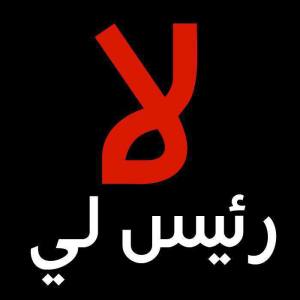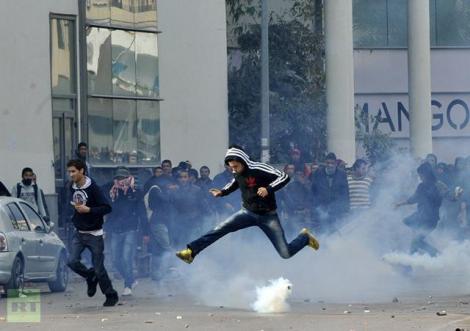Blog Archives
TUNISIA: Statement of Disobey Movement
 Tunisians have been living since the disbandment of KASBAH sit-in under the dominance of a rivaling political class with homatophagous politicians feeding on the blood of the poor and the marginalized exploiting the wealth in the regions while discarding its inhabitants causing the people to survive with the minimum conditions of life and to suffer poverty and lethargic unemployment. The situation is aggravating due to the fascist tendency the system has taken with the assassinations of political militants Shokry Belayd and Muhammad Brahmy; the list is still open to more assassinations. Read the rest of this entry
Tunisians have been living since the disbandment of KASBAH sit-in under the dominance of a rivaling political class with homatophagous politicians feeding on the blood of the poor and the marginalized exploiting the wealth in the regions while discarding its inhabitants causing the people to survive with the minimum conditions of life and to suffer poverty and lethargic unemployment. The situation is aggravating due to the fascist tendency the system has taken with the assassinations of political militants Shokry Belayd and Muhammad Brahmy; the list is still open to more assassinations. Read the rest of this entry
TUNISIA: A Call for Unity
From: هيئات العمل الثوري/حركة عصيان/disobey movement
To all Revolutionary Groups in Tunisia,
Now two years have passed since the outbreak of the uprisings yet, despite the succession of governments and in spite of the abundance of promises and electoral programs, the economic and social crisis is aggravating and the conditions of the greater majority of the people, that is, the wage-earners, the unemployed, the poor and the marginalized, are deteriorating. The political parties’ tussle over power is driving the country towards civil war. Political institutions, especially the Constituent Assembly as well as the government, the prefectures and sub-prefectures, etc claim in bankruptcy as they proved to be incapable of finding solutions. These institutions are actually part of the problem for the new rulers scramble over privileges and rush to the seizure of bailiwicks. The system of favoritism and loyalism is back. Moreover, both police and the military fail to provide real security executing the same brutal repression tactics at protests. On the other hand, while the owners of fortunes, businessmen and intermediates of every sort are getting richer, the State keeps on boosting prices and insinuates the axing of all basic consumerist items subsidies as dictated by the IMF. The State is also axing unemployment insurance, cutting jobs and calling off all the social gains the masses earned during the early part of the revolutionary movement so that the masses pays the price of the crisis under the mottos of “Commonweal,” “Saving the National Economy,” that is, saving capital from its generalized crisis. Read the rest of this entry
TUNISIA: Anarchists Against Counter-Revolution in Tunisia
Protests in Tunisia
by Robert Graham
Protests have spread across Tunisiaafter the assassination of a leftist opposition leader, Chokri Belaid. The new Islamist government is also cracking down on the Tunisian anarchist movement, following the example of their brethren in Egypt. Recently, I have been posting selections from Kropotkin’s Words of a Rebel on the counter-revolutionary nature of representative and “revolutionary” governments. Here, I reproduce a declaration of Tunisian anarchists calling for libertarian socialism in Tunisia. Read the rest of this entry
TUNISIA: والدة البوعزيزي: قطار الثورة متوقف
13/12/2012 | تونس العاصمة

Paradoxes of Arab Refo-lutions Article by Asef Bayat

Serious concerns are expressed currently in Tunisia and Egypt about the sabotage of the defeated elites. Many in the revolutionary and pro-democracy circles speak of a creeping counter-revolution. This is not surprising. If revolutions are about intense struggle for a profound change, then any revolution should expect a counterrevolution of subtle or blatant forms. The French, Russian, Chinese, Iranian, and Nicaraguan revolutions all faced protracted civil or international wars. The question is not if the threat of counter-revolution is to be expected; the question rather is if the ‘revolutions’ are revolutionary enough to offset the perils of restoration. It seems that the Arab revolutions remain particularly vulnerable precisely because of their distinct peculiarity—their structural anomaly expressed in the paradoxical trajectory of political change. Read the rest of this entry
